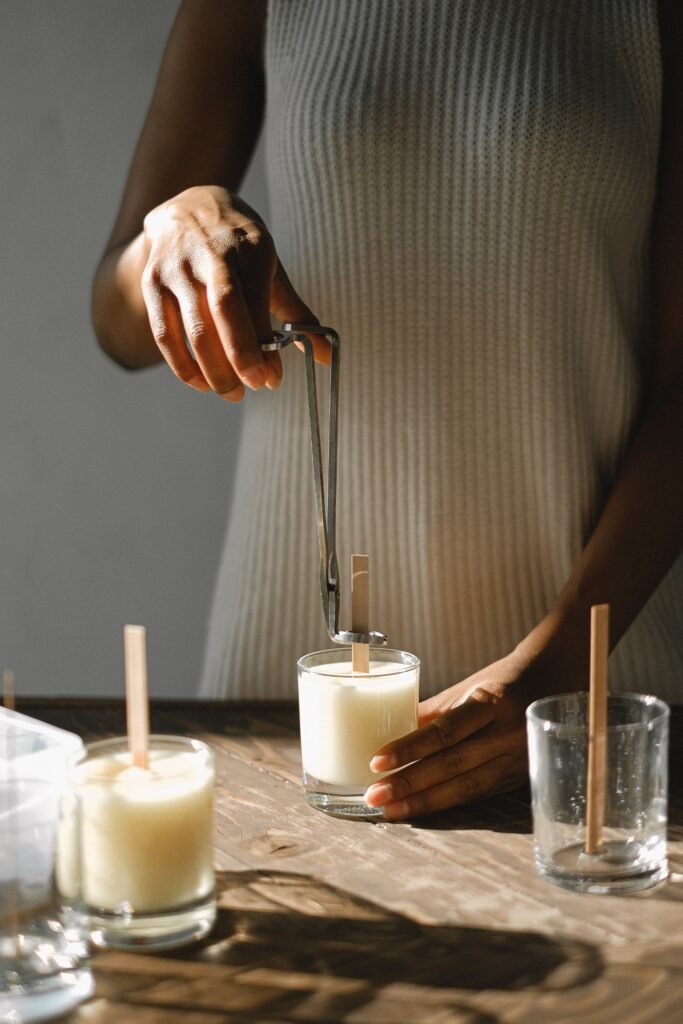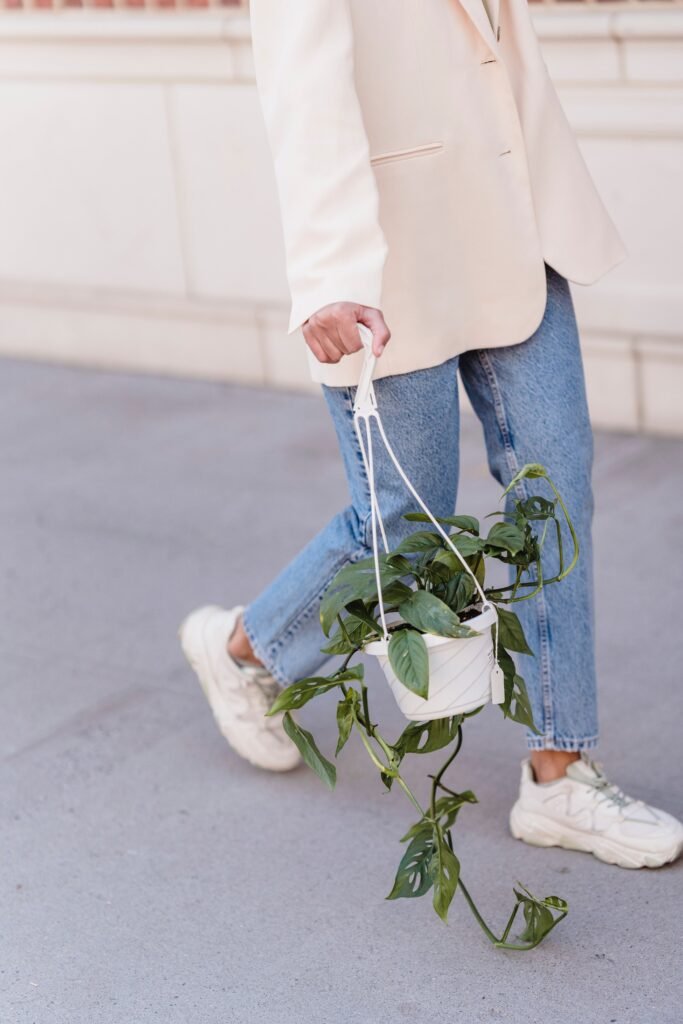Are you looking for a creative and budget-friendly way to spruce up your garden or balcony? Look no further than DIY Planting Ideas: Upcycled Wooden Crate Planters. These charming and sustainable planters are not only easy to make, but they also add a touch of rustic charm to any outdoor space. In this article, we will explore how you can transform old wooden crates into beautiful planters, and discover some innovative planting ideas to bring your green thumb to life. Get ready to unleash your creativity and create a wonderful oasis with these upcycled gems!

This image is property of images.pexels.com.
Benefits of Upcycled Wooden Crate Planters
Environmentally-friendly
Using upcycled wooden crates as planters is a great way to contribute to environmental sustainability. By repurposing crates that would otherwise end up in landfills, you are helping to reduce waste. Upcycling is a form of recycling that promotes creativity and resourcefulness, and by choosing to create planters out of wooden crates, you are making a positive impact on the environment.
Cost-effective
One of the major benefits of using upcycled wooden crate planters is that they are cost-effective. Instead of spending money on expensive planters, you can repurpose old crates that are often readily available and affordable. This allows you to save money while still adding a unique and rustic touch to your garden or home.
Versatile
Wooden crate planters offer great versatility in terms of their uses. They can be used for both indoor and outdoor gardening, making them suitable for various spaces such as balconies, patios, and even windowsills. Additionally, they can be easily moved around and rearranged to suit your preferences and the needs of your plants. With some creativity, the possibilities for using upcycled wooden crate planters are endless.
Unique and rustic look
One of the most appealing aspects of upcycled wooden crate planters is their unique and rustic aesthetic. The weathered and worn look of the crates adds character and charm to any space. Whether you prefer a more vintage or contemporary style, wooden crate planters can be customized to match your personal taste and fit seamlessly into any design scheme. The natural warmth and beauty of the wood will enhance the overall visual appeal of your plants and create a visually pleasing environment.
Choosing the Right Wooden Crates
Types of wooden crates
When choosing wooden crates for your upcycled planters, it’s important to consider the type of wood used. Different types of wood have different characteristics and durability, so opt for crates made from hardwood such as oak or cedar, as they are long-lasting and resistant to rot. Avoid crates made from softwood, as they may deteriorate quickly and affect the longevity of your planters.
Size and shape considerations
The size and shape of the wooden crates are also important factors to consider. Think about the type of plants you intend to grow and their root system. Larger plants with extensive root systems will require deeper and wider crates, while smaller plants can thrive in shallower crates. Additionally, consider the available space where you plan to display your planter and choose crates that fit well and complement the surrounding environment.
Condition of the crate
Before repurposing a wooden crate, carefully inspect its condition. Look for any signs of damage, such as cracks or rotting wood, as this can affect the longevity and stability of your planter. Ensure that the crate is structurally sound and free from any chemicals or contaminants that may harm your plants. It’s always best to choose crates that are in good condition to ensure the success of your wooden crate planters.
Sourcing wooden crates
Wooden crates can be found in various places, such as flea markets, thrift stores, or even by reaching out to local businesses that may have excess crates they would be willing to give away. You can also consider searching online marketplaces or social media platforms for people selling or giving away wooden crates in your area. Remember to prioritize crates that are in good condition and made from a suitable type of wood for long-lasting planters.
Preparing and Pre-Treating the Wooden Crates
Cleaning the crates
Before using the wooden crates as planters, it’s important to clean them thoroughly. Remove any dirt, dust, or debris by wiping them down or using a soft brush. If the crates have been previously used to transport goods, you may need to scrub them with mild soap and water to remove any residue. Allow the crates to dry completely before proceeding to the next step.
Treating the wood
To ensure the longevity of your wooden crate planters, it’s recommended to treat the wood to protect it from decay and pests. You can apply a wood preservative or sealant to the interior and exterior surfaces of the crates. This will help to prevent water damage and keep insects and fungi at bay. Follow the instructions provided by the manufacturer of the preservative or sealant for the best results.
Sealing the crates
Sealing the wooden crates is an important step in preparing them for planting. A waterproof sealant or paint can be applied to the exterior of the crates to provide an extra layer of protection against moisture and weathering. Choose a sealant that is specifically formulated for outdoor use and opt for a color or finish that complements your overall design aesthetic. Applying a sealant will help to prolong the lifespan of the crates and keep them looking good over time.
Planting Tips for Upcycled Wooden Crate Planters
Choosing the right plants
When selecting plants for your wooden crate planters, consider their specific needs and requirements. Some plants thrive in full sun, while others prefer shade. Take into account factors such as the amount of light and water the plants will receive in the chosen location. Additionally, consider the size and growth habits of the plants to ensure they have enough space to flourish. Choose plants that are suitable for the climate and conditions in your area for the best chances of success.
Preparing the soil
Proper soil preparation is essential for the health and growth of your plants. Fill the wooden crate planters with a high-quality potting mix that is well-draining and nutrient-rich. Avoid using garden soil, as it may contain pests or diseases that can harm your plants. You can enhance the soil’s fertility by adding organic matter such as compost or aged manure. This will provide the plants with the necessary nutrients for healthy growth.
Watering and drainage
Watering is a crucial aspect of plant care, and it’s important to ensure proper drainage in your wooden crate planters. Drill drainage holes in the bottom of the crates to allow excess water to escape, preventing waterlogging and root rot. Monitor the moisture levels in the soil and water the plants accordingly. It’s better to underwater than overwater, as excessive moisture can lead to fungal diseases and other problems. The frequency of watering will depend on various factors such as the plant’s water requirements and the weather conditions.
Arranging the plants
When arranging the plants in your wooden crate planters, consider their sizes, colors, and growth habits. Place taller plants towards the back to create depth and provide a backdrop for shorter plants. Add trailing or cascading plants to the front or sides of the crate for a visually appealing arrangement. Experiment with different plant combinations to create a harmonious and aesthetically pleasing display. Remember to leave enough space between plants to allow for proper airflow and growth.

This image is property of images.pexels.com.
Creative Ways to Use Upcycled Wooden Crate Planters
Vertical garden
Transform your wooden crates into a living vertical garden by attaching them to a wall, fence, or trellis. Arrange the crates in a desired pattern and securely mount them to the chosen surface. Fill each crate with plants of your choice, ensuring proper drainage. A vertical garden is a great solution for small spaces or if you want to add a unique focal point to your garden.
Herb garden
Create your own herb garden by repurposing wooden crates as individual planters for different herbs. Label each crate with the name of the herb to keep them organized. This not only provides you with fresh herbs for cooking but also adds a touch of greenery and fragrance to your kitchen or outdoor space.
Floral centerpiece
Use a wooden crate as a centerpiece for your dining table or outdoor gathering. Fill it with a mix of colorful flowers and foliage to create a stunning focal point. You can change the flowers depending on the season or occasion, adding variety and freshness to your space.
Indoor plant display
Bring the beauty of nature indoors by using wooden crate planters for your houseplants. Mix and match different crate sizes, shapes, and colors to create an interesting and eye-catching display in your living room, bedroom, or even bathroom. Place them on a windowsill, shelf, or table to add a touch of greenery and warmth to your home.
Decorating and Personalizing Wooden Crate Planters
Painting and staining
Personalize your wooden crate planters by adding a pop of color or a touch of stain. Use non-toxic, outdoor-grade paint or stain to ensure the safety of your plants. You can paint the entire crate or create patterns and designs to match your style and decor. Let your creativity shine and make your wooden crate planters truly unique.
Stenciling and decoupage
Add some personality to your wooden crate planters by using stencils or decoupage techniques. Stencil patterns or designs onto the crates using acrylic paint to create intricate and beautiful designs. Alternatively, decoupage can be done by gluing decorative paper or fabric onto the crates, sealing it with Mod Podge or a waterproof sealant. These techniques allow you to customize your planters and make them truly one-of-a-kind.
Adding handles or wheels
Improve the functionality of your wooden crate planters by adding handles or wheels. Attach sturdy handles to the sides of larger crates to make them easier to transport. This is particularly useful if you plan on moving the planters around your garden frequently. For added mobility, attach wheels to the bottom of the crates, allowing you to effortlessly move your planters from one location to another.
Adding labels or signs
Label your planters for easy identification by adding labels or signs. Use chalkboard paint on the crate surface and write the names of the plants with chalk, allowing you to easily switch the labels if needed. Alternatively, attach small engraved signs or plant markers to the crates, adding a charming and rustic touch to your garden.

This image is property of images.pexels.com.
Maintenance and Care for Wooden Crate Planters
Watering schedule
Establish a regular watering schedule for your wooden crate planters based on the needs and preferences of the plants. The frequency of watering will depend on various factors such as the type of plants, weather conditions, and the moisture retention capacity of the soil. Monitor the moisture level of the soil by inserting your finger into it. If it feels dry about an inch below the surface, it’s time to water.
Fertilizing
Regularly feed your plants with a balanced, water-soluble fertilizer to promote healthy growth. Follow the manufacturer’s instructions for dosage and frequency, as over-fertilization can harm the plants. Consider using organic fertilizers to minimize the environmental impact and ensure the overall well-being of your plants.
Pest control
Monitor your wooden crate planters for any signs of pests such as aphids, mealybugs, or snails. Inspect the plants regularly and take necessary action at the first sign of infestation. Use organic pest control methods such as neem oil, insecticidal soaps, or natural predators to keep pests at bay. Regularly remove any dead leaves or debris from the planters, as they can attract pests and harbor diseases.
Monitoring crate condition
Regularly inspect the condition of your wooden crate planters to ensure they remain structurally sound. Check for any signs of rotting or damage caused by weather conditions or pests. If you notice any issues, repair or replace the affected crates as needed. Regular maintenance and care will help extend the lifespan of your wooden crate planters and keep them looking their best.
Common Mistakes to Avoid
Overwatering
Overwatering is a common mistake that can lead to root rot and other issues. Avoid watering your plants too frequently or in excessive amounts. Always check the moisture level of the soil before watering and ensure that the drainage holes in the crates are functioning properly.
Choosing inappropriate plants
Make sure to choose plants that are suitable for the specific conditions in your wooden crate planters. Consider factors such as sunlight exposure, temperature, and humidity levels. Select plants that have similar water and light requirements to ensure they thrive together in the same planter.
Not sealing the crate properly
Failing to properly seal your wooden crate planters can lead to water damage and decay. Make sure to apply a suitable sealant or paint to protect the wood from moisture and weathering. Pay attention to all exposed surfaces, including the interior, exterior, and the bottom of the crates.
Neglecting maintenance
Regular maintenance is crucial to the longevity and overall health of your wooden crate planters. Don’t forget to regularly water, fertilize, and inspect your plants for pests or signs of damage. Additionally, keep an eye on the condition of the crates themselves, making any necessary repairs or replacements as needed.
Inspiring DIY Upcycled Wooden Crate Planter Ideas
Hanging crate garden
Create a unique hanging garden by suspending wooden crates from ropes or chains. Attach the crates at different heights to add dimension and visual interest. Fill the crates with trailing plants or flowers to create a cascading effect and a stunning vertical display.
Tiered crate planter
Stack multiple wooden crates of different sizes to create a tiered planter. Secure the crates together with screws or brackets, ensuring stability. Fill each crate with plants of your choice, arranging them in a visually appealing manner. This tiered planter will add height and depth to your garden while maximizing your planting space.
Crate succulent garden
Succulents are popular plants that thrive in wooden crate planters. Create a stunning succulent garden by filling a wooden crate with a variety of succulent species. Mix different shapes, sizes, and colors of succulents to create a visually striking and low-maintenance display.
Stacked crate herb garden
For those who love cooking with fresh herbs, a stacked crate herb garden is a great option. Stack multiple crates of the same size, with each crate dedicated to a different herb. Label each crate with the corresponding herb’s name for easy identification. This stacked herb garden allows for easy access to a variety of fresh herbs right in your backyard or kitchen.
Conclusion
Upcycled wooden crate planters offer an array of benefits, from their environmentally-friendly nature to their cost-effectiveness and versatility. By repurposing wooden crates, you are not only contributing to the reduction of waste but also adding a unique and rustic charm to your garden or home. Choosing the right wooden crates, preparing them correctly, and following planting tips will ensure successful growth and an attractive display. Get creative with how you use your wooden crate planters, from creating vertical gardens to personalized and decorated pieces. Regular maintenance and avoiding common mistakes will keep your wooden crate planters thriving. So, unleash your creativity and start enjoying the beauty and functionality of upcycled wooden crate planters in your own space.




